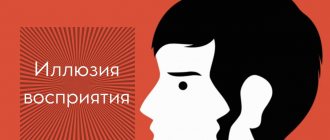Transbuccally - how is that?
The characteristics of the glycine molecule determine the easiest way for it to penetrate into the blood - through the mucous membrane of the mouth.
In the instructions for use, you may find the words “sublingual” or “buccal”. What “sublingual” means can be understood simply by the sound of the word - the tablet must be placed under the tongue and kept there until completely dissolved, without dissolving.
Buccal administration is the placement of a tablet or powder behind the cheek, between the cheek and gum, usually in the area of the angle of the lower jaw. Buccal administration is especially convenient for young children, children with developmental delays, neurological patients, during and after a stroke, when keeping the medicine under the tongue is problematic.
All about the dosage form
Unfortunately, not all people carefully study the instructions for the drug when purchasing medications. But in vain. Even when products have the same active substance, their indications and method of use can be very different. And a clear example of this is the drug Glycine, which is produced by the company BIOTICS. The peculiarity of the amino acid is that it is poorly absorbed by the digestive system. If you take the drug by swallowing it with water, it will not have any effect. Glycine, which is produced by the BIOTICS company, is significantly different from other products. It's all about microencapsulation technology, which was developed and patented by the company (the RF patent number is indicated on each package).
How should adults take glycine?
In stressful situations, emotional overload, sleep disorders, neurotic reactions, autonomic dysfunction, it is recommended to take 1-2 tablets of glycine 3 times a day. To prevent insomnia and as maintenance therapy, 1 glycine tablet at night, 20-30 minutes before bedtime, is usually sufficient. For persistent cognitive disorders and organic brain lesions, the treatment regimen can be changed by your doctor at his discretion.
Narcologists prescribe Glycine to improve the emotional background and attitude towards treatment, restore metabolism, and reduce the severity of cognitive impairment. Usually the drug is prescribed as part of a complex treatment, 4-6 tablets per day, in courses of 30 days or more, with breaks of 14-30 days.
With the development of ischemic stroke, glycine can significantly reduce the affected area, or even prevent necrosis of brain tissue. To do this, within 3-5 hours from the development of ischemia, take 10 tablets (1 g) of Glycine - this can be done even before the ambulance arrives. The first thing to do when signs of a stroke appear is to call a doctor! Recovery after a stroke when taking Glycine proceeds faster and with better results; its use is advisable in any period after a cerebral accident, but is always more effective when started early.
Treatment of Post-Traumatic Stress Disorder
Sometimes it seems that the world has turned upside down - reality is so similar to a bad dream or a television action movie. Is it possible for a person to contain his emotions and prevent them from splashing out? For a while, yes!
But stress, becoming chronic, keeps you in such high tension that any minor situation can become excessive for the psyche. Doctors assess this human condition as post-traumatic stress disorder. Its classic examples: the “Vietnamese” syndrome among the Americans, the “Afghan” and “Chechen” syndromes among us.
At first, it seems that for those who have gone through the hell of war, everything is normal. They just got tougher! However, soon the psycho-emotional status begins to change sharply: a person is haunted by intrusive memories, hallucinations, anxiety, productivity disappears, the quality of life deteriorates, depression develops - a direct path to various diseases.
It's not easier for children. Their psyche is affected and can provoke post-traumatic stress disorder not only by global experiences, but also by events that are insignificant for most: a barbarously broken toy, discord between parents, family breakdown... As a result - loss of sleep, decreased attention, inability to concentrate, restlessness... Begins to “limp” » academic performance, conflicts develop in relationships with teachers and parents...
(It is important to note that the exacerbation or even the presence of such a disorder is a reason to consult a doctor. Do not hesitate and find a good specialist in this field.)
Such conditions require correction, and it must be carried out as nature requires, physiologically - with Glycine and Biotredin® .
The natural amino acids, carboxylic acids, and vitamins contained in these medications act gently, without side effects, and provide enormous assistance.
Glycine is said to have powerful anti-stress effects. In order to have the opportunity to relieve tension, conflict, aggressiveness and at the same time increase performance, improve memory, all household members should take it (irritation and intolerance are “contagious”!) regularly for a month, 1 tablet 3 times a day.
Biotredin® , solving internal biological problems, allows you to achieve harmonization of the personality: internal contradictions weaken, bad mood recedes, and with it hidden (the most dangerous to health) depression.
It is better to take these metabolite drugs according to the following scheme: it is recommended to put a Glycine tablet under the tongue (3-4 times a day), 10-15 minutes after its dissolution - a Biotredin® tablet (2-3 times a day).
But nevertheless, do not forget to contact a specialist!
How should children take glycine?
Glycine is a safe drug; without accumulating in the body, it eventually turns into water and carbon dioxide. Therefore, its use is permitted from a very early age; long-term or several repeated courses are recommended.
Up to 3 years of age, for neurological disorders, insomnia, high excitability, glycine is prescribed 0.5 tablets per dose, usually 2-3 times a day, for up to two weeks. Maintenance dose – 0.5 tablets for 10 days buccally or sublingually. A child over three years old is given 1 tablet per dose, following the same regimen. If necessary, the course of treatment with Glycine can be increased to one month and repeated after 30 days.
Children are recommended to take glycine in powder form by crushing the tablet. This avoids the tablet getting into the respiratory tract and accelerates the absorption of glycine into the blood.
Achieved effect
The medicine underwent clinical trials, during which its effectiveness was proven.
According to the instructions, Glycine helps:
- reduce psycho-emotional stress, conflict, aggressiveness, increase social adaptation;
- improve mood;
- make it easier to fall asleep;
- increase mental performance;
- reduce vegetative-vascular disorders;
- reduce the severity of brain disorders in traumatic brain injury and ischemic stroke;
- reduce the toxic effects of drugs and alcohol.
Glycine – placebo or effective?
Glycine is one of the most popular and affordable drugs used for all occasions. It is taken both to improve memory in children and to treat hangovers in adults. How does glycine affect the human body and how effective is it?
Anatomy of a drug
Glycine is the simplest amino acid without aromatic chemical bonds. It has a sweetish taste, is produced by the body itself and is part of many organic compounds and proteins. In particular, the amino acid is involved in the Krebs cycle - the process of glucose oxidation and saturation of cells with oxygen. Glycine accelerates this process and makes tissue respiration possible even in conditions of oxygen starvation of the body.
As a rule, the body rarely experiences a lack of glycine. During heavy exercise, when cells require more oxygen and energy, the amino acid content increases and the body's physical capabilities increase. A lack of amino acids will provoke metabolic disorders and affect a person’s well-being.
Glycine (aminoacetic acid, aminoethanoic acid) – C2H5NO2
The brain needs glycine most of all, since the amino acid is also a neurotransmitter - it is involved in the transmission of electrochemical impulses between neurons. At the same time, glycine slows down signal transmission. It suppresses the production of glutamic acid, whose task is exactly the opposite. As a result, the muscles relax and nervous tension is relieved.
By comparison, when the brain experiences an excess of glutamic acid, muscle cramps occur and nerves become taut like guitar strings. Psychologically, this leads to dissipation of attention, hyperactivity and increased aggression.
In pharmacies, the amino acid is sold in the form of tablets that must be dissolved under the tongue. Pharmacists claim that the medicine has a calming effect, reduces the side effects of a hangover, and also improves intellectual abilities.
How effective is the medicine glycine?
The body's glycine content is strictly regulated. However, in moments of stress, when the content of glutamic acid goes off scale, doctors recommend helping the body calm down.
In the case of children, the amino acid makes the child diligent, normalizes sleep and, as a result, allows him to be more attentive in his studies. When it comes to adults, glycine is used in the treatment of alcohol and drug addiction.
Laboratory experiments have revealed that the drug has a beneficial effect on cerebral vessels, relieves restless legs syndrome and even helps with acute myocardial ischemia.
True, everyday life is far from laboratory conditions and in fact the effectiveness of the drug has not been proven.
The fact is that the central nervous system is covered with a protective layer and does not accept beneficial amino acids from the outside.
As for the cells of the body, in order for glycine not to be washed away in the blood and reach the tissues, it must have a very high concentration. This is where the problem arises. Contrary to popular belief, it is still possible to be poisoned by large amounts of glycine.
An overdose of the drug will manifest itself in diarrhea, abdominal pain, low blood pressure, dizziness and increased body temperature. In addition, there may be complications associated with the liver and kidneys. An allergic reaction may also occur.
Should I take glycine?
Despite the unproven effects and criticism from a number of researchers, doctors recommend using glycine.
This medicine does not work as a strong tranquilizer or antidepressant. By the way, if this were so, it would not be sold freely.
However, as part of other medications, as an aid to the main drug, the use of glycine is quite justified.
Glycine is a substance with a history, numerous positive reviews and a low price. It is very effective as a placebo drug. If you sincerely believe that it will help you calm down and affect your intellectual abilities, then it will be so.
Doctor-hygienist
Gapanovich Valentina
Valeologist
Dmitrieva Lyudmila
A cure for everything or a dummy?
Doctors are still arguing whether glycine is beneficial. We tried to figure it out
Arguments for
Glycine plays an important role in our body. It is part of many proteins and biologically active compounds and is involved in important reactions. In addition, glycine receptors are present in many areas of the brain and spinal cord.
Hundreds of studies show that glycine can improve human conditions:
- when tired,
- negative consequences of stress,
- alcoholism,
- sleep disorders,
- consequences of stroke and head injuries,
- excessive excitability,
as well as in many other situations, including schizophrenia.
This substance is non-toxic. It is already produced in our body and is easily absorbed. At least, no harm has yet been identified from taking the drug in recommended doses.
Arguments against
It is not entirely clear how easily glycine crosses the blood-brain barrier, a special mechanism that allows foreign substances to enter the brain through blood vessels. Perhaps the main part of the tablet is distributed through the stomach to different organs, and only small remnants or nothing at all reach the main recipient - the brain.
Supporters of strict evidence-based medicine claim that there is not yet enough experimental data confirming the benefits of glycine. Need more statistics.
Yes, glycine seems to be safe (but this is not certain). After eating pork jellied meat, we receive a dose of this substance equivalent to thousands of tablets. It seems like nothing bad is happening to us. The therapeutic effect, however, is also somehow not obvious.
Conclusion
If glycine helps you, take it! Even if the healing effect has not yet been proven, no one cancels the effect of placebo. In addition, the “healing pacifier” effect works well in cases where glycine is prescribed - for example, during stress or reduced concentration.







